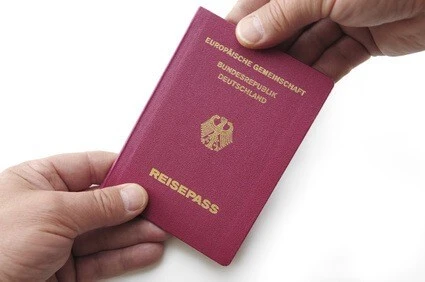Moving Abroad

Container Shipping

Information & Popular Routes
Services

Find a Mover


So you are moving to Germany? Congrats! One small thing: you are going to need a little ticket-to-ride called a visa. In order to minimize your stress and maximize your excitement, we have created this brief guide to getting a visa in Germany. Before you know it you will be kicking it with the other Germans and setting yourself on the path to making Germany your forever home. Read on!
The rain on the parade of a move abroad is paperwork. In truth, acquiring and maintaining your visa in Germany could be an incredibly stressful item on your list of priorities until you earn a permanent residency in Germany (after living in Germany for five years).
But don’t sweat! As long as you educate yourself on the policies surrounding visas in Germany and be diligent about meeting all the requirements, you will be the model of how to navigate bureaucracy in style.
Below we cover the different visas you can apply for and give you a leg up on the German visa application process!
Unless you are moving to Germany for love (how romantic!), your job will most likely be your ticket to a visa in Germany. This means that you need to acquire a German work permit, so how does that work?
Like so many things, it depends. There are several work permits that you might be eligible for, so it is important to be familiar with your options:
Awarded to non-EU workers without a specific skillset. Be warned, though, this is a misleading challenging work permit to get, as your position must pass the ‘market test‘ (I.e. an EU citizen could not be found for the job, which is rare).
German visas awarded to highly educated, highly skilled, highly paid workers (did we remember to emphasize ‘highly’?). In essence, a work permit for in-demand knowledge-workers.
A pan-European visa, you can apply for this if your salary is €56,800 or higher.
For self-employed workers. However, as part of your application you will be required to prove sustaining income and expected business.
For young live-in child caretakers between the ages of 18 – 27, but must have a basic grasp of German.
A huge perk for educated Americans, who are eligible to live in Germany for up to six months while seeking work on-site.
So if you are moving to Germany for love (still romantic!), the partner visa is available to you. Because Germany recognizes both civil partnerships and same-sex marriage, you can rest assured that Germany will welcome your partnership situation!
In order to be awarded a partner visa in Germany, the sponsoring partner must be a German national or registered German resident. In certain circumstances, the sponsoring partner must be employed with a minimum salary to guarantee financial support for their partner.
Luckily, Americans do not need to apply for entry-visas, since US passport holders can enter the EU for up to 90 days without a visa. Check!
For the remainder of your German visa application, make sure to cross those t’s! First things first, you should apply as early as you can. Partner visa applications can take up to 12 weeks to process.
If you are applying for a German work permit, you can only apply for this once you have arrived in Germany. Your first step will be registering your address with your local municipality, providing rental documents when prompted.
Once you have a job, an address, and German health insurance, simply make an appointment with the German immigration services (Ausländerbehörde) and bring the following documents with you:
Processing times for German visa applications are typically just a few weeks. Once you have it signed, sealed, and delivered, you are good to go to start working in Germany!
SireloTip! When you meet with the immigration authorities, try to be ‘German’ about it. Dress formally, provide clear and orderly documents, and be on time. You only get one chance to make this first impression!
*Sponsored
Planning a move to Germany? Then we can imagine that you will have plenty to arrange before packing up. Why not check out our full expat relocation guide for everything you need to know before moving to Das Land der Dichter und Denker? Or, check out the helpful articles linked below for further reading. Good luck!